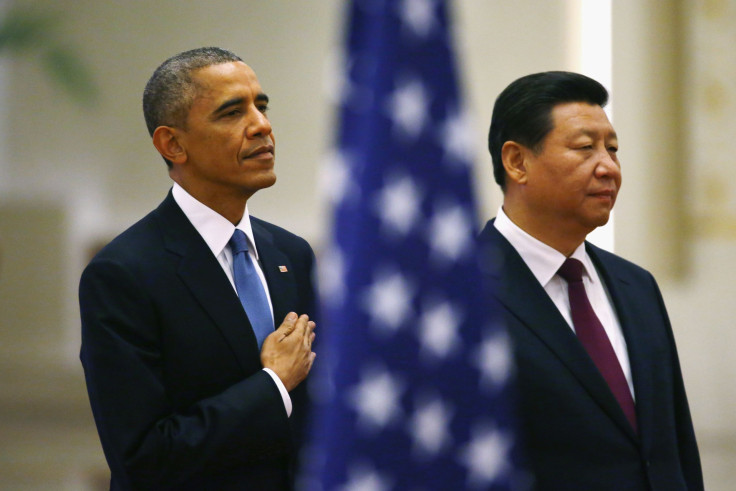China And US Announce Ambitious Climate Change Deal

Chinese leader Xi Jinping and U.S. President Barack Obama struck a potentially historic deal Wednesday to limit greenhouse gases, with China pledging for the first time to cap carbon emissions and Obama unveiling a plan for deeper U.S. emissions reductions through 2025, the Washington Post and New York Times reported.
China, the world’s biggest emitter of greenhouse gases, pledged in the far-reaching agreement to cap its rapidly growing carbon emissions by 2030, or earlier if possible. It also set an ambitious goal of increasing the share of non-fossil fuels to 20 percent of its energy mix by 2030.
Obama announced a target to cut U.S. emissions 26 to 28 percent below 2005 levels by 2025 – eight years after he leaves office -- the first time the president has set a goal beyond the existing 17 percent target by 2020.
The two countries together account for about 40 percent of the world’s greenhouse-gas emissions, and their commitments are likely to energize talks underway to set new post-2020 targets when climate negotiators meet in Paris in December of next year.
"The seriousness of the challenge calls upon the two sides to work constructively together for the common good," read the White House announcement of the accord. "To this end, President Barack Obama and President Xi Jinping ... will work together, and with other countries, to adopt a protocol, another legal instrument or an agreed outcome with legal force under the convention applicable to all parties at the United Nations Climate Conference in Paris in 2015."
“The announcement provides a real shot of momentum for international climate negotiations,” one administration official speaking anonymously told the Post. “Historically, the U.S. and China have often seemed like antagonists in these negotiations.”
The surprise announcement was the signature achievement of an unexpectedly productive two days of meetings between the leaders, the Times noted. Obama and Xi also agreed to a military accord designed to avert clashes between Chinese and American planes and warships in the tense waters off the Chinese coast, as well as an understanding to cut tariffs for technology products.
China completes a new coal plant every eight to 10 days, and while its economic growth has slowed, it is still expanding at a brisk rate exceeding 7 percent.
The scale of construction for China to meet its goals is huge even by Chinese standards. It must add 800 to 1,000 gigawatts of nuclear, wind, solar and other zero-emission generation capacity by 2030 — more than all the coal-fired power plants that exist in China today and close to the total electricity generation capacity in the United States.
And to meet its target, the United States will need to double the pace of carbon pollution reduction from 1.2 percent per year on average from 2005 to 2020 to 2.3 to 2.8 percent per year between 2020 and 2025.
Administration officials acknowledged that Obama could face opposition to his plans from a Republican-controlled Congress. While the agreement with China needs no congressional ratification, lawmakers could try to roll back his initiatives, undermining the United States’ ability to meet the new reduction targets.
Still, Obama’s visit, which came days after heavy losses in the midterm elections, allowed him to reclaim some of the momentum he lost at home. As the campaign was turning against the Democrats last month, Obama quietly dispatched John Podesta, a senior adviser who oversees climate policy, to Beijing to try to finalize a deal, the Times reported.
Obama administration officials called the climate agreement a “historic step” that came together after months of negotiations, beginning when Secretary of State John Kerry raised the subject on a trip to Beijing in February. Obama followed up with a letter to Xi in the spring and met with Vice Premier Zhang Gaoli during the U.N. General Assembly in September, the Post reported. Chinese officials expressed interest in pursuing a deal that could be completed ahead of the Asia-Pacific Economic Cooperation meetings here this week, administration aides told reporters in a background briefing Wednesday.
© Copyright IBTimes 2024. All rights reserved.











